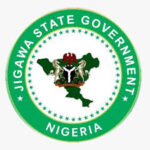A collaborative academic research programme, Hypertension Treatment in Nigeria, which has enrolled over 23,000 patients with hypertension, is seeking to scale up its work to five new states in the country.
Co-Principal Investigator, Hypertension Treatment in Nigeria Programme, Professor Mark Huffman of Washington University in St. Louis, USA and Dike Ojji, associate professor and lead investigator, Cardiovascular Research Unit, Department of Internal Medicine, Faculty of Clinical Sciences, College of Health Sciences, University of Abuja, stated this at a stakeholders meeting in Abuja.
They listed the five states as Abia, Delta, Gombe, Jigawa and Oyo.
The Hypertension Treatment in Nigeria programme is a five-year National Institute of Health-funded collaborative academic research work by the University of Abuja, Washington University in Saint Louis, USA, and Northwestern University, Chicago, USA, which commenced in 2019 and is expected to end in 2024.
- Bandits gun down Sarkin Hausawa’s son in Kaduna
- More pressure on Naira ahead possible interest rate hike
Other collaborators in this study are the Federal Ministry of Health of Nigeria, Resolve to Save Lives, the World Health Organisation, the Federal Capital Territory Primary Healthcare Board, and the Public Health Department of the Federal Capital Development Authority.
The research is ongoing in 60 primary healthcare centres in all six area councils of the Federal Capital Territory (FCT).
Giving an update on the project, Huffman and Ojji said, “We have submitted a renewal application to the NIH/NHLBI to support national scale-up in five states and diabetes integration in the FCT with support from other stakeholders.
“If approved, we are hopeful that it would have a significant effect on the treatment and care of hypertension, especially in Nigeria.”
Hypertension is a leading cause of morbidity and mortality in Africa, and Nigeria, the most populous country on the continent, contributes significantly to this burden, with with high prevalence of over 30 per cent.
Huffman and Ojji’s team is also working on a new study titled ‘Enhancing Intergenerational Health in Nigeria: Peripartum as Critical Life Stage for Cardio Vascular Health (ENHANCE-CVH)’, funded by NIH until 2028. This study focuses on maternal cardiovascular health and how it affects the newborn child.
The team, which also included Prof. Victor Davila-Roman of the Global Health Centre, Institute for Public Health, and Dr Godwin Akaba of the University of Abuja, is a collaborative academic research project between the University of Abuja and Washington University in Saint Louis, USA, in collaboration with Parents as Teachers, USA.
In a presentation, Dr Ojji said another important NIH-funded work on which the team was focusing was the Nigeria Sodium Study, which commenced in 2020 and would end in 2026.
“The result is now driving the Front-of-Labelling of the Federal Ministry of Health,” Ojji said, adding that already, the Federal Ministry of Health had indicated interest in using the data from the research to set nationwide limits on salt consumption as a way of reducing cardiovascular diseases in the country.
The Nigerian Sodium Study Team comprises medical scientists from the University of Abuja, University of Abuja Teaching Hospital, Washington University in Saint Louis, Missouri, Northwestern University, Chicago; Nutrition Coordinating Centre, University of Minnesota, the George Institute for Global Health, and University of New South Wales, Australia, working in collaboration with the National Agency for Food Drug Administration and Control (NAFDAC), Federal Ministry of Health (FMOH) Nigeria, Resolve to Save Lives (RTSL), and the Global Health Advocacy Incubator (GHAI).
The study is currently ongoing in the Federal Capital Territory of Nigeria and two other states, Ogun and Kano, with the overall objective of establishing mandatory sodium limits in Nigerian food.
“We believe that scaling up our studies, collaborating with other important health institutions, and making the government come up with effective policies based on the results of cutting-edge health-related research will help improve our health system a lot,” Ojji stated.

 Join Daily Trust WhatsApp Community For Quick Access To News and Happenings Around You.
Join Daily Trust WhatsApp Community For Quick Access To News and Happenings Around You.

